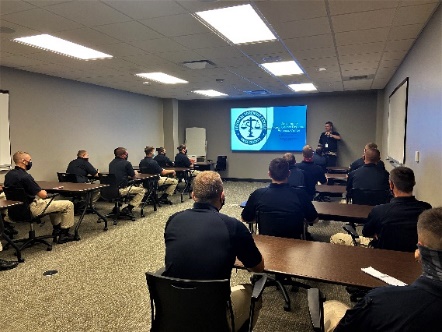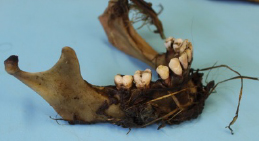
Job Shadowing
The Knox County Regional Forensic Center offers a job shadowing experience for those currently studying a related field. Shadowing can occur in three of our departments; medicolegal death investigation, autopsy technician, or forensic pathology. Part of this opportunity may include attendance of Morning Report (presentation of case history), death scene response, autopsy observation or review of cases with the pathologist. In order for any type of Shadowing experience to occur, you will need to provide the following:
- Resume or CV as proof of your course work/career path
- Two (2) “skill specific” recommendation letters sent directly from professors with whom you have studied or Supervisors from forensic/medical related field work
Upon receipt of the required documentation, our CAO or a representative will review the documentation provided and notify you of dates/times that are available, as well as forward a Confidentiality Agreement as well as a Bloodborne Pathogen Exposure Agreement Letter.
Please email all questions and documentation regarding shadowing to our business office at rfcbusiness@knoxcounty.org
Training Conferences & Seminars

The RFC conducts training conferences and offers seminars at our facility for other forensic center employees, law enforcement agencies, medical personnel, or other qualified professionals interested in enhancing their forensic knowledge. Our state-of-the-art training facility and conference rooms provide an excellent learning environment.
Pathology Residency

The Knox County Regional Forensic Center is proud to be affiliated with the University of Tennessee Graduate School of Medicine. Pathology students complete their autopsy rotation and residency at our facility. As mentioned previously, our medical examiners are clinical associate professors at The University of Tennessee Knoxville and our facility provides a training ground for future doctors. For further information, please visit http://gsm.utmck.edu/pathology/students.cfm.
Forensic Dentistry

More than half of all skeletal, decomposed, burned, or dismembered decedent’s positive identifications are achieved by the forensic dentist preforming an oral autopsy and employing antemortem (before death) radiographs in a point-by-point comparison to postmortem (after death) radiographs. Dentist on faculty, in the graduate Forensic Dentistry program, and Dentistry fellowship at Lincoln Memorial University’s College of Dental Medicine in Knoxville, TN, manage these identifications along with dental age estimations, disaster victim identifications, and bite mark analyses. These experts are American Board of Forensic Odontology (ABFO) board certified or in training for board certification under the instruction of doctors James Lewis, Perter Loomis, and Holland Maness.


